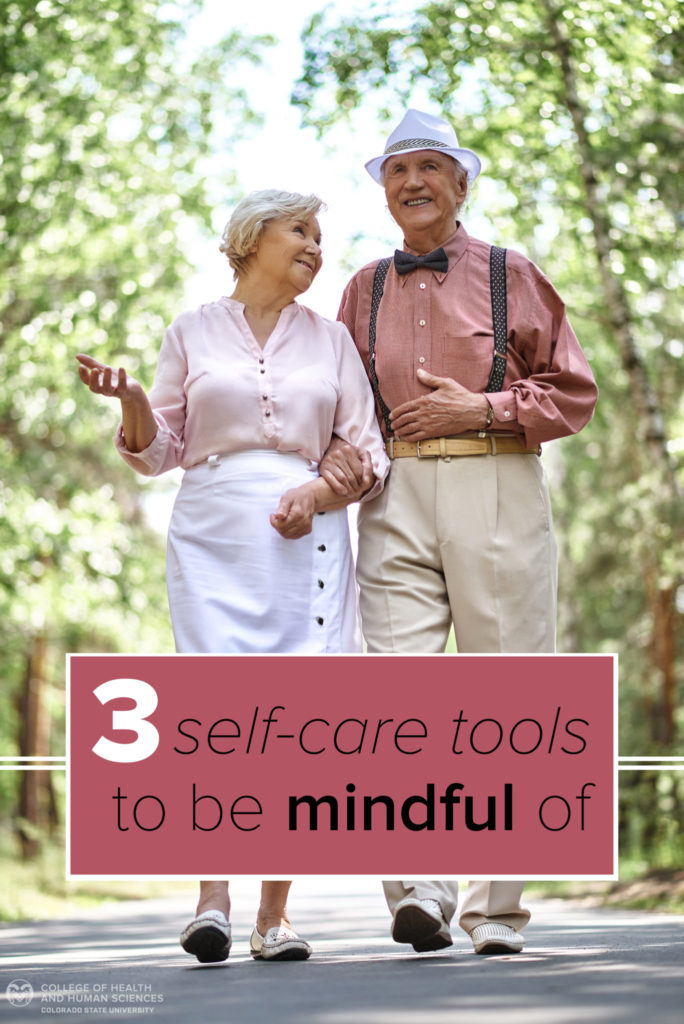Valentine’s Day is often seen as a time of giving to others, and showing those that we love that we care. However, it is also important for us to remember that we need to give and show care to ourselves as well. This is especially true for grandparents.
Grandparents often report that once they start raising their grandchildren, they do not have time for themselves anymore. Caring for themselves and doing the things they once enjoyed are moved to the backburner, and their lives begin to revolve around the grandchildren. While the drive to put grandchildren first is admirable, this can end up being very harmful for both the grandparent and the grandchild. Stress and negative emotions begin to build, resulting in physically and emotionally distressed grandparents. Unfortunately, grandchildren often feel this distress also, since the negativity can spill over into grandparent interactions with them. As a result, both grandparents and grandchildren become distressed.
This distress for both parties indicates how important it is for grandparents to put themselves first and practice self-care. When grandparents practice self-care, this not only benefits themselves, but the benefits often translate into better care for their grandchildren, as well. Rather than interacting with grandchildren from a burnt-out place of frustration and exhaustion, well cared-for grandparents are able to better access the joy, positivity, and energy they receive from self-care when interacting with their grandchildren.
There are many different tools and strategies that grandparents can utilize to practice self-care and avoid stress and negativity this Valentine’s Day. The following are a few tools from the Powerful Tools for Caregivers curriculum that could be helpful to try.
- Create a Self-Care Plan for the week. Write down something that you would enjoy doing and make a plan to do it at least once over the course of the week. It is important to choose something that you actually like doing and something that is feasible. This activity can be something small like breathing deeply for five minutes or something bigger such as going out for coffee with a friend.
- Recognize signs and sources of stress. Awareness of signs and sources of stress can help to create more understanding of stress and to gain control over it. By recognizing signs and sources of stress, it becomes easier to catch stress early and deal with it before it becomes too overwhelming.
- Seek help from others. No one person can do everything by themselves. It can be helpful to know our limits, and to ask others for help before we begin feeling overburdened or overextended. This week, identify at least one person with whom you can share some of your responsibilities. Then decide which responsibilities this person can do in your place. This could also mean seeking help from an organization or a program that can provide extra support or services.
These tools may seem easy on paper, but in practice they can prove challenging. Old habits of neglecting ourselves can be difficult to break, and it often takes more than a few times of trying before they become more natural. Additionally, you may find that doing self-care once a year for Valentine’s Day is not enough. You may find more positive results by making it a point to practice these self-care tools throughout the year.
For more self-care tools or for more information about Powerful Tools for Caregivers, visit their website at https://www.powerfultoolsforcaregivers.org/. For more health tips, visit the College of Health and Human Sciences Pinterest board.
Story by Jana Carson: Jana is a second year graduate student in the Marriage and Family Therapy Program. Jana completed a double major in Psychology and Spanish at Creighton University. She then moved to Nicaragua for two years where she immersed herself in the culture and volunteered with an organization helping to empower impoverished families. After this, she moved to Colorado where she began working with a local psychotherapist and volunteering as a mentor for the Matthew’s House. Jana deeply believes in the benefits of many types of therapy, but she especially enjoys utilizing humanistic and systems theory approaches.